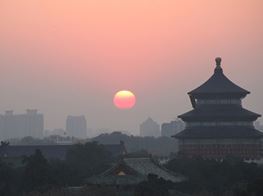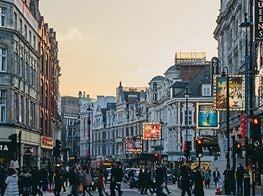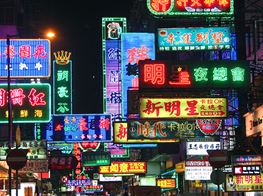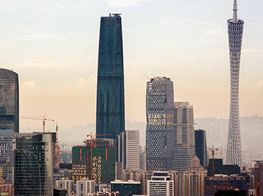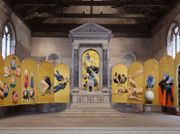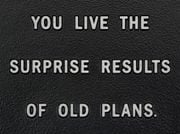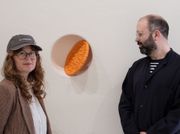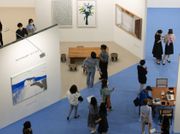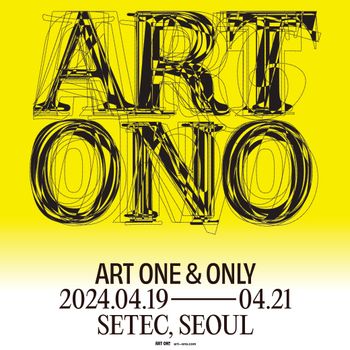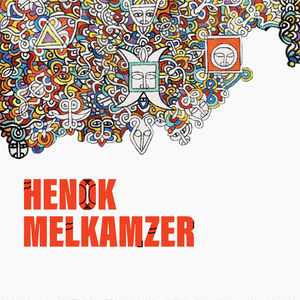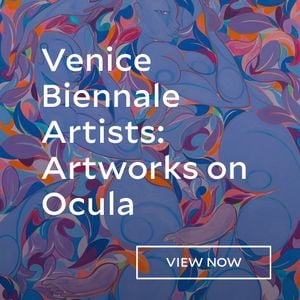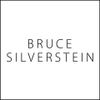Li Zhenhua
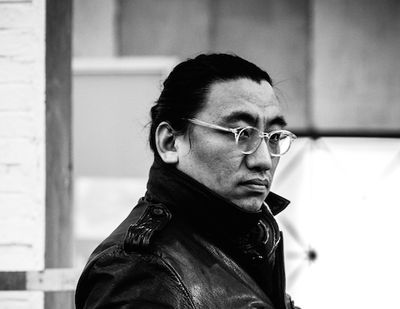
Writer, curator, artist and producer Li Zhenhua is the founder of Laboratory Art Beijing and the Mustard Seed garden. Li is actively engaged in the production, dissemination and critical discussions around new media, and has taken part in symposiums, talks and presentations at leading galleries and museum spaces worldwide, including ZKM Karlsruhe, the Walker Art Centre in which he curated the Wave project and the Guangzhou Museum as a participating artist of the Guangzhou Triennale in 2005. A prolific and active participant in the creative industries, Li managed the first international new media art festival MAAP in 2002 in Beijing, where it was held at the Beijing Millennium Monument Museum, and between 2002 and 2003, he founded and organized the Illuminate the Great Wall music festival. In 2005, he and Loredana Cozza founded the Naples Far East Film Festival with Dongfang University, and the next year, he was appointed executive producer of the Beijing International New Media Arts Exhibition and Symposium. It is this background, as Li notes, which led him to become the curator of Art Basel in Hong Kong’s inaugural film programme. In this interview, Li talks about his thinking behind the 2014 film programme, and how his experience fed into the curatorial project.
You divided the first film programme at Art Basel in Hong Kong, which was launched this year, into the following categories – 'Action' (which looks at the trinity between activity, performance, and video) 'Animation' (which traces the discovery, techniques and practice of this genre), 'Performance' (which is oriented towards the dramatization of actions, events and performances), 'Fiction Mix' (which looks at story telling at the core of any visual presentation), 'Urban Life' (which looks at how urban civilization impacts on daily life through often bizarre behaviours, witticism, and humour), and 'Beautiful Visuals' (which focuses on visual perception and the mixing of sound and video). Could you talk about how you came to these categories?
My concern regarding the categories was focused on the bases of what people could understand or access, and it was related to a certain kind of art making method. For example, action is a physical movement, a status of a gesture or a state of mind. In this regard, I wanted to bring communicate and share things in a simple way so that other questions might be triggered between the categories of the programme, while also reflecting on media or video art. More than any other time in history, trying to make things more precise has become more and more complicated, and we need more abstract words to describe the world so that we might also enter into the ambiguity of situations and understand things from different aspects or contexts. For the audience, categories should not be barriers to understanding or of imagination.
Was there a starting point for your programme this year – a work, a conversation, a thought – in terms of the themes you decided to employ, and the works you came to show?
I like things to appear by themselves, so the categories and the artworks selected this year emerged as things would emerge in nature – the choices grew from and in the public, and in general, I feel more like the green-fingered helper who makes the works more visible. Sure, curating is always related to certain experiences or contexts, such as one’s culture and society. But it also comes from the complexity of our world, the reality of our time and from the virtual. Reflecting on that, the film programme might be a recall of a get together: In reality, I care more about what makes people get together. This is the art of the project. It is also about what is needed now in our rapidly changing lives. To this end, I conceived of the programme also as a space or cave to hide.
What were the challenges you faced when thinking about curating a film programme of visual art within a cinema space, and during an art fair? Did the context affect your choices in terms of what to show?
Independency shall always remain in individual choices, no matter if they were made with or without money, with or without power, or with or without a location. I do believe curating is an independent practice that helps to present things that people might know in a different narrative, and most of time curating can invent moments of an in between: a space for everyone in an equal situation. The challenge for me with this programme was the question of why people would come to the show during Art Basel in Hong Kong, and how would this be interesting for the people of Hong Kong? Apart from the art fair, without a Hong Kong audience, the programme would make no sense for me. I do hope the project is a middle ground between the art fair and the art world, and a way for both to meet with the public in Hong Kong. The programme is free, after all.
You mentioned this idea of Activism Utopia when talking about this programme—could you expand on this idea?
This idea is what is hinted at throughout the film programme, and you can see it in the work from Chimpom or Roman Signer in the section called ‘Action’. The aim is to trigger thoughts on the difference between artist participation in society and their artistic practice, which was also the topic for a Salon discussion I moderated on May 15th with Chimpom and Kwan Sheung Chi, which reflected on the idea of social change, which was especially focused on Hong Kong.
You are the founder of Laboratory Art Beijing. How did you establish it and with what reasons and intentions?
My interests have always changed and Laboratory Art Beijing has had different missions over the years. From the beginning, the mission was to focus on gathering people from different fields to work together, and this was followed with a concern in exhibition presentation and curating. Then, it focused on research and interviews in film and media in different cities. Now, the mission is to focus on research and working on artist books and working with artists directly so as to produce knowledge production within society. For me, Laboratory Art Beijing will always change to adapt and keep up to date with art production.
Did you apply your experience here into how you approached the film programme at Art Basel in Hong Kong?
My work after 2000 has been completely focused on film and media art, which might be the reason why I was asked to work on the film programme for Art Basel in Hong Kong. My Laboratory Art Beijing project is more of a research-based institution that helps to better understand what’s going on and what needs to be done with regards to art practice. From the research that we have undertaken in media art, documentary film and geo-politics, and on people who use media art as a political weapon, I have gained a better understanding of the medium and the topic of art and society today. This helped me when thinking about what to present in Hong Kong.
Further to this, how did your experience in running the first new media art festival in Beijing, MAAP, in 2002, also influence your approach to working with Art Basel's film programme?
I have been working on the MAAP project in Beijing with Kim Machan and Fan Di’an and Pi Li since 2002, and in this time I have learned a lot by working as project manager and producer of the show. It has also changed my perception of media art till now, and has brought me closer to the creation of media art globally. It’s not enough to gain knowledge by thinking alone. It is important to understand things practically and physically as well – to understand things by hand. This might not have anything to do with the Art Basel in Hong Kong and the film programme, but I cannot deny the butterfly effect that MAAP produced: it made a wave that might turn into a storm later. My interest in working in media art is because there are always new things to be discovered, and this happens also when I analyse in individual artist’s creation as well. Looking at media art might change the way we see art and history today. It might allow us to gain a better understanding of others and to share with others.
You advised on the exhibition to be held at the Barbican Centre in London this year, Digital Revolution. Could you talk about this exhibition? What will it explore, and through what kinds of practices?
I am the advisor of the show, which is curated by Conrad Bodman, who curated the show Game On, which I liked very much in that this was a show offering a different analysis of culture in our time, through music, graphic design and game design. Conrad brought fantastic work to the public and the show was a success. So I have to say, I trust in Conrad and I think the Digital Revolution exhibition will go beyond the words “Digital” and “Revolution.” I have a lot of hope for the project. We need newer perceptions of augmented reality, as expressed through art and culture. —[O]

